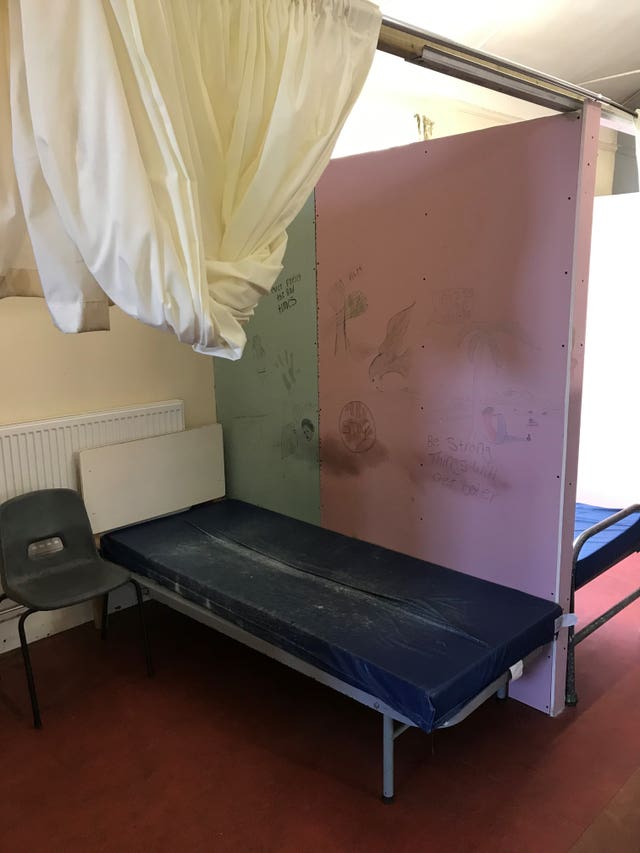Napier Barracks ‘could be used to house asylum seekers for longer’
Lawyers and medical professionals gave evidence to the All-Party Parliamentary Group on Immigration Detention.

The Government may be considering using military barracks to house asylum seekers for “another couple of years”, MPs and peers have heard.
Lawyers told a parliamentary inquiry that Napier Barracks in Kent could be used for asylum accommodation beyond September, after it was initially thought the measure was temporary and anticipated to last for about a year during the coronavirus pandemic.
The All-Party Parliamentary Group (APPG) on Immigration Detention heard evidence on Thursday from legal and medical professionals who have worked with people staying at the barracks, after it launched an inquiry into the Home Office’s use of such sites amid concerns over living conditions.
Sue Willman, a solicitor at Deighton Pierce Glynn Law, told the politicians: “We have heard that the Government plan to extend use of the barracks beyond September, which is something we are very concerned about, that they’re continuing to use it for another couple of years.”
She urged them to seek “further clarification” on this amid suggestions that portable cabins may be moved to the site from an immigration detention centre as part of plans for future use.
Nearly 200 people at the barracks in Folkestone, Kent, contracted Covid-19 during a major outbreak earlier this year.
In April the Home Office declared the outbreak was over and insisted asylum seekers were staying in “safe, suitable, Covid-compliant conditions”.
But this month senior health officials said it is still “difficult to envisage” the site being considered Covid-safe.
It came after six asylum seekers previously housed there won a legal challenge against the Government as a High Court judge ruled their accommodation was inadequate.

The Home Office faced renewed calls to shut the site in the aftermath of the ruling, but instead insisted “significant improvements” have been made.
But the inquiry heard that it so far appears unclear as to what those improvements are.
Home Secretary Priti Patel and immigration minister Chris Philp have both defended the use of such sites in the past, suggesting they were suitable because they had been previously used for military personnel.
This is despite an inspection by two independent watchdogs describing parts of the barracks as “filthy” and “decrepit”, highlighting “fundamental failures” in housing asylum seekers there.
Dr Jill O’Leary, head of charity the Helen Bamber Foundation’s medical advisory service, told the APPG hearing: “Military personnel have not been occupying the barracks for a number of years.
“They were disused for a reason and, even when they were being occupied by military personnel, it was for one to two weeks at a time, it certainly was not expected that anyone would live there for months, rather than weeks, which is what we are seeing with the residents who are staying there at the moment.”
Asylum seekers are “inherently vulnerable” and have “significant healthcare challenges”, she added.
Dr Juliet Cohen, head of doctors at charity Freedom From Torture, said there are differences between asylum seekers and service personnel who need to be “fit, young, well-nourished individuals with no active health conditions” for active duty.
“Napier and Penally (another barracks initially used in Wales but has since been closed) were not suitable for service people, there had been many complaints, they were run-down, seldom used and only used for very short periods.”
The inquiry also heard that the military and “quasi-detention-like” environment could badly affect those who have faced traumatic experiences or torture.
Mr Philp told the Commons earlier this month that no decisions have been made on whether the department will continue to use the barracks beyond September.
On Thursday the Home Office said this was still the case, with a spokeswoman adding: “Significant improvements have been made to the site, including improved accommodation and more outdoor and recreational activities.”




